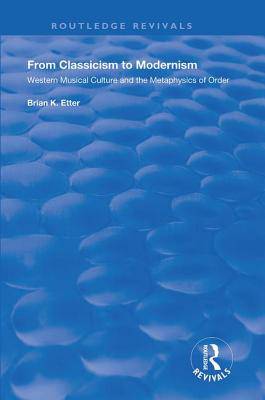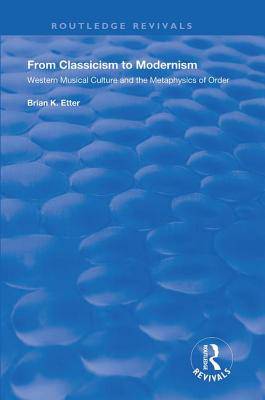
- Retrait gratuit dans votre magasin Club
- 7.000.000 titres dans notre catalogue
- Payer en toute sécurité
- Toujours un magasin près de chez vous
- Retrait gratuit dans votre magasin Club
- 7.000.0000 titres dans notre catalogue
- Payer en toute sécurité
- Toujours un magasin près de chez vous
Description
This title was first published in 2001. The last century has witnessed the ascendancy of the avant-garde in music. From Schoenberg to Boulez to Stockhausen, the avant-garde has defined the modern conception of musical creativity. Contemporary serious music demands the "new" in terms of style, form and ways of listening and hearing. Implicit in this approach is the rejection of the "old", from the baroque to the music of the later 19th-century symphonists. Paradoxically, however, it is this "old" repertoire which contiues to dominate concert programmes. An exploration of this dichotomy lies at the heart of this book. Drawing on a wealth of European philosophical and musical texts, the author examines the origins of the avant-garde and its relation to modernity in tandem with the history of the tonal tradition.
Spécifications
Parties prenantes
- Auteur(s) :
- Editeur:
Contenu
- Nombre de pages :
- 256
- Langue:
- Anglais
- Collection :
Caractéristiques
- EAN:
- 9781138736771
- Date de parution :
- 03-12-19
- Format:
- Livre relié
- Format numérique:
- Genaaid
- Dimensions :
- 155 mm x 236 mm
- Poids :
- 544 g







